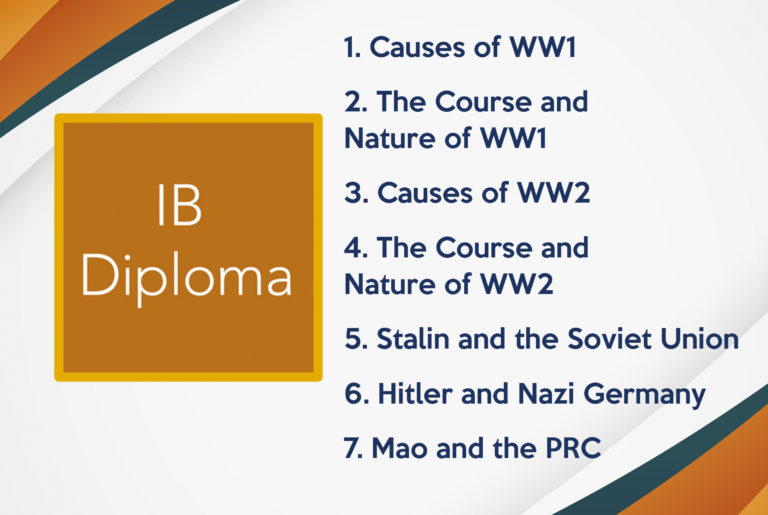Hitler’s great mistake in 1941
1941 was the crucial year of the war and it was a year littered with mistakes that would have the most profound consequences: in lives and with regard to the eventual outcome of the war. It was the year in which Hitler invaded the Soviet Union and Japan bombed Pearl Harbour. They were both huge mistakes. And the Japanese bombing of Pearl Harbour would result in Hitler making another crucially significant mistake: declaring war on America. But 1941 saw another bad mistake made. For the initial success of Hitler’s invasion of the Soviet Union was the result of a third mistake, this time made by his great adversary, Stalin. For Stalin refused to accept all the evidence that Hitler was about to invade. Both men had encouraged a cult of infallibility, but in 1941 both men blundered badly and their countries paid a tremendously high price. As too, of course, did Japan. So, four huge mistakes, and in four short pieces, I intend to examine all of them, beginning with Hitler’s initial mistake.
Hitler had ideological reasons a plenty for invading the Soviet Union: lebensraum, crushing Bolshevism, smashing the world Jewish conspiracy. However, with the Battle of Britain barely underway, Hitler was already thinking that Britain would best be defeated by first defeating the Soviet Union (a total reversal of his original strategy). At a meeting with the chiefs of his armed forces on July 31st, which General Halder recorded in his diary, Hitler told them:
‘Britain’s hope lies in Russia and the United States. If the hopes pinned on Russia are disappointed, then America too will fall by the wayside, because elimination of Russia would tremendously increase Japan’s power in the Far East….
Russia is the factor on which Britain is relying the most…. With Russia smashed, Britain’s last hope would be shattered. Germany will then be master of Europe and the Balkans.
Decision: Russia’s destruction must therefore be made a part of this struggle. Spring ’41. The sooner Russia is crushed the better. Attack achieves its purpose only if Russian state can be shattered to its roots with one blow. Holding any part of the country will not do…. If we start in May ’41, we would have five months to finish the job in. Tackling it this year would still have been the best, but unified action would be impossible at this time.[1]
This was Hitler’s strategic reasoning. But Halder’s notes also show how Hitler’s planning, such as it was, had gone awry. A major war had come before Germany was ready, Britain was not fully defeated before he turned his attention to the Soviet Union. And the Soviet Union had to be defeated (as France had been) in a single campaign. The German economy, and so German rearmament, was not geared for anything more. Nor was the German army, for example no provision had been made for winter clothing or for antifreeze for its tanks.
Hitler, however, was totally confident. He told General Jodl, Chief of the Operations Staff for the Armed Forces High Command, ‘We only have to kick in the door and the whole rotten structure will come crashing down.’[2] And unlike before, he didn’t hear loud noises contradicting his judgment from his army chiefs. Stalin’s purges, the Soviet army’s poor performance against the Finns in the Winter War of 1939-40, and their own surging confidence in themselves, had its own effect.
Even so, moves made by others showed that Hitler was not, indeed could not be, in total control of events. First, the Soviet Union forced Rumania to cede Bessarabia (something agreed in the secret protocol of the Nazi-Soviet Pact) and northern Bukovina too. And in response Hitler felt he needed to send military missions to Rumania in September lest the state crumble (Germany needed its oil). These were quickly followed by German troops being stationed in the country. This upset the Soviet Union which Hitler was not so worried about, but it also upset Mussolini who regarded the Balkans as Italy’s sphere of influence. So, to show he could not simply be ignored by Hitler, Mussolini invaded Greece, only informing Hitler (as had been Hitler’s way with Mussolini) when it was too late to do anything about it. And as it did prior to WW1, such open aggression in the Balkans was likely to suck in other Balkan states (both Bulgaria and Yugoslavia had claims on Greek territory) whilst the Soviet Union and Britain would now have an excuse to intervene.
Still, Hitler was determined to take on the Soviet Union. At a meeting with top military leaders and Ribbentrop in January, 1941 Hitler, with repeated reference to Stalin’s purges, told them, ‘Since Russia has to be beaten in any case, it is better to do it now, when the Russian armed forces have no leaders and are poorly equipped, and the Russians have to overcome great difficulties in their armaments industry.’[3] He went on to tell them what he had said to the chiefs of the armed forces in July, 1940 that with the Soviet Union crushed, Britain would either seek terms or else Germany, with vastly increased resources at its disposal, would crush them next. Also with the Soviet Union crushed, Japan would make its move and tie America down so that it would not be able to come to Britain’s aid in Europe.
But the Italians were on the retreat in both Greece, where they had been pushed back into Albania, and in North Africa. Consequently, Hitler ordered Luftwaffe squadrons to move to southern Italy in order to strike at Egypt and the straits between Sicily and North Africa, for an armoured division to be sent to Libya, and for troops to move through Hungary and Rumania, across Bulgaria and Yugoslavia and into Greece. Hungary and Rumania were already German satellites and members of the Tripartite Pact and a task force of 680,000 was soon assembled in Rumania. Bulgaria and Yugoslavia were persuaded to also join the pact but Hitler’s plans were upset by a coup in Yugoslavia led by army officers opposed to the government because it had allied itself with the Germans. Hitler didn’t hesitate and attacked Yugoslavia as well as Greece in the first week of April and both countries were overrun, Yugoslavia in just eleven days, Greece in just three weeks. Whilst in North Africa, General Rommel took less than two weeks to recapture all the territory lost by the Italians and had pushed the British back to the Egyptian frontier. The point is though that German troops, almost a million men, and all the necessary resources, had been committed to the Greek and North African campaigns that could otherwise have been deployed in the Russian campaign.
Still, Hitler issued orders for Operation Barbarossa, the invasion of the Soviet Union, to be completed by May 15th, and throughout the first six months of 1941, German forces were assembled on the Soviet frontier until their numbers stood at three million men. Did Hitler’s campaigns in Greece and North Africa cost him the chance to defeat the Soviet Union in a single campaign? The start of Operation Barbarossa was pushed back, from May 15th to June 22nd, but this was the result of bad weather, a late thaw which left the ground too boggy. It was still a huge force, nevertheless when Army Group South launched its attack into the Ukraine, it was without a third of its tank strength. German forces were already overstretched. Also, such were the German losses in the attack on Crete, that Hitler was discouraged from using airborne troops on any large-scale operations against the Soviet Union. But not discouraged enough to halt the attack.
Was Hitler blinded by his ideological hatred of communism? Was he himself taken-in by the myth of his infallibility? In 1945, with defeat imminent, Hitler was unrepentant. He still felt he had had no choice. He remained convinced that it was his only hope of forcing Britain to negotiate a peace. ‘For us it was an inescapable compulsion to remove the Russian piece from the European chess-board.’ Besides, just as Germany feared Russian rearmament in 1914, so Hitler claimed that he had to make his move in 1941: ‘Our only chance of defeating Russia lay in anticipating her … Time was working against us.’[4] That may be, but Germany was capable of holding what it had in Western Europe, particularly if America didn’t enter the war in Europe (more of which when we look at his second mistake). And that he took on more than he could cope with in invading the Soviet Union is not in doubt.
[1] Quoted in Alan Bullock, Hitler and Stalin: Parallel Lives, p. 744 + Robert Gellately, Lenin, Stalin and Hitler, p. 382 (underlining in General Halder’s original diary entry)
[2] Quoted in Alan Bullock, p. 759
[3] Quoted in Alan Bullock, p. 774
[4] Quotes from Alan Bullock, p.758





